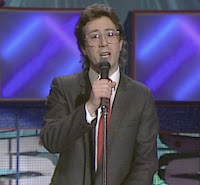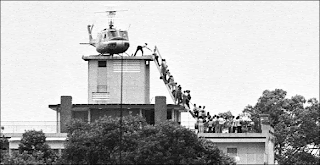In particular, he drew attention to how we become utter gits when trying to avoid spending a train journey sat next to anyone, and especially anyone undesirable, you know, moron with tinny music seeping from his headphones, musty old person chain-sucking Worthers Originals, any member of parliament.
Thus, Elton surmised, we wait at the platform gate with "Double seat, double seat, gotta get a double seat," riffing away in our heads because, let's face it - when it is clearly better to arrive than to travel, because the latter is usually purgatory - having that single space next to you on a train is public transport nirvana.
When sharing your travels with others, space - and especially personal space - is a premium. Like prisoners sharing overcrowded cells, any square inch you can call your own is a square inch of dignity maintained. This - and Elton's 'Double Seat' bit - reared up in my consciousness this week when European budget air travel pioneer easyJet announced that it was "phasing in" allocated seating. In other words, phasing out the dignity-stripping experience of you, your travelling companions and the little luggage you can take on board, legging it across a rain-strafed apron to be up the plane steps to bag yourself a window seat or a row of three.
Like Elton's granny-bashing charge to acquire dual-perch rail comfort, the queue for an unallocated seat with airlines like easyJet brings out the very worst in people. Everyone is considered an adversary, no matter how benign their appearance. You stand there in the queue, shuffling inch-by-inch as it hunches closer to the thin strip of elasticated tape that is the only thing keeping you herded in like sheep, waiting for your boarding group to move.
If you've paid for 'Speedy Boarding', you smugly look upon those without, knowing that your 50 metre dash to the aircraft door will reward you with an entire jet plane to choose your seat from. You momentarily think of those poor suckers in their 'ordinary' groups who'll just have to take their chances like refugees fleeing a war-torn country. Yes, I'm not proud, but I, too, have compared those passengers in the final boarding group to those desperate Vietnamese trying to board the last American Huey out of Saigon.
So, following a trial early this year, easyJet has decided to join the grown-ups of air travel and is introducing allocated seating. This, trills their press release, "because passenger research showed that the boarding process could be a source of stress for some customers and in some case, a barrier to them flying with easyJet." No shit, Sherlock.
"Offering allocated seating on all of our flights is the single, biggest change the airline has undertaken in its history and an example of easyJet trying to do all it can to make travel easy and affordable for our passengers," explained the airline's UK director, Paul Simmons, stating that passengers had told them that allocated seating "was important to them", presumably because that's how it has worked throughout the modern history of commercial aviation, where you would at least be offered "window or isle", and in the bad old days of flying like a beagle in a perfume laboratory, "smoking or non-smoking?".
I know it's naughty of me to chide easyJet alone: flying Southwest Airlines in America - the airline on whose business model was largely copied by easyJet and the other low-cost carriers - is an exercise in tactical gamesmanship that wouldn't go amiss on the sports field.
As someone who used to fly Southwest frequently out of Silicon Valley's gateway airport, San Jose, I got to recognise the lengths fellow passengers went to ensure they were in 'Boarding Group A', and avoid the badge of condemnation that was 'Boarding Group D'.
There was a technique to getting into Group A, but it required dedication. Getting to the gate by 6.30am for a 7.30 flight to San Diego was rarely enough when you'd arrive to discover a small troop of hardened road warriors camped out in front of the desk, having been their since 3am the day before, as if queuing outside the Apple store for the latest iPhone. Madness. Just to get a window seat.
This is a far cry from the era when jetting off for a weekend in Biarritz meant wearing a suit and smoking a pipe while stewardesses - as they could be called then - served martinis at 30,000 feet. Now, you have to be dressed for hand-to-hand combat at the gate.
That said, 9/11 took much of the blazers-and-pearls glamour out of air travel. In America, where prior to that atrocity getting on and off planes was somewhat akin to catching a bus, flying by plane became a shoe-removing, belt-undoing, strip-searching ordeal, replicated everywhere else. Before you'd even started struggling with that packet of in-flight nibbles, you were exhausted by the sheer D-Day landing craft crapshoot of getting on to the plane itself.
While the nightmare of airport security may be something we all have to endure - regardless of the class of travel - the notion of elitism between travel classes has never been a major problem.
However, the idea that, by paying an extra £7.50 for easyJet's former Speedy Boarding option gives you a decidedly unegalitarian edge over your fellow passengers, who will sit in the same seats, with the same class of service, and the same menu of extortionately-priced sandwiches and soft drinks, makes it all the more absurd.
I made it a personal policy not to fly with the budget airlines some time ago. For a start, I discovered their savings were rarely that. Once you add up all the extras, fees and spurious charges, you more or less pay the same with a 'scheduled' carrier as with a low-cost flyer. And why should you have to be put through the grief of paying for your ticket, paying extra for your boarding card, extra for a bag slightly larger than a pencil case, a 400% mark-up on refreshments? It doesn't make much sense at all.
However, easyJet's abandonment of the free-for-all hasn't been at the expense of extra charges. You will still be charged £3 if you want a specific seat, £12 for a seat in the front row or £8 if you want sit in rows 2 to 5. Bizarrely, if your preference is an exit row, which will have a little more knee room than the rest of the plane, easyJet will take £12 off you. It's worth noting that on most easyJet flights - which operate Airbus planes - the mid-plane exits are over the wings. Which are also the planes fuel tanks. Not that ideal a location in the event of a crash. Just sayin'.
Ryanair, the market leaders in finding new ways to screw money out of the passenger, have also introduced preference-paid seating. However, in charging £10 for an exit row seat, reports started appearing that their aircraft were taking off without anyone sat next to an emergency exit, a legal requirement under many aviation regulators - and which prompted the Irish Aviation Authority to investigate.
Still, easyJet maintain that it's us, this is all about. "This is an example of easyJet trying to do all it can to make travel easy and affordable for our passengers," said Carolyn McCall, easyJet's chief executive.
"Our customers asked us to trial allocated seating and we are really pleased with the positive passenger feedback during the trial". As should McCall's shareholders. The new system means that easyJet will now be able to make money from all seats on a plane rather than the 30 they reserved for Speedy Boarding passengers.
Travel does broaden the mind, and unleash our fantasies. Who doesn't feel like James Bond when first entering a hotel room, opening and closing wardrobes just to ensure trouble isn't lurking. But the experience of getting there comes at a cost.





No comments:
Post a Comment